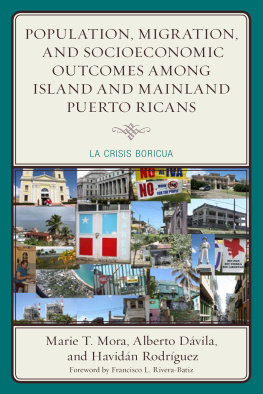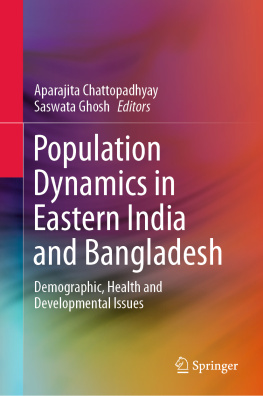Malthusian Worlds
Polemics Series
Michael Calvin McGee and Barbara Biesecker, University of Iowa John M. Sloop, Variderbilt University
Malthusian Worlds: U.S. Leadership and the Governing of the Population Crisis, Ronald Walter Greene
The "Better Angels" of Capitalism: Rhetoric, Narrative, and Moral Identity Among Men of the American Upper Class, Andrew Herman
judgment Calls; Rhetoric, Politics, and Indeterminacy, edited by John M. Sloop and James P. McDaniel
The Rise of Rhetoric and Its Intersections with Contemporary Critical Thought, Omar Swartz
Without Apology: Andrea Dworkin's Art and Politics, Cindy Jenefsky
Rhetoric and Marxism, James Arnt Aune
FORTHCOMING
Recovering Bodies: Feminisms and the Representations of Addiction, Melissa Friedling
Literary Integrity and Political Action, Kathleen Farrell
Critical Legal Rhetorics, Marouf Hasian Jr.
The Paradox of Empowerment: U.S. Leadership and the Spatial Imagination of the Population Crisis, Ronald F. Wendt
Malthusian Worlds
U.S. Leadership and the Governing of the Population Crisis
Ronald Walter Greene
First published 1999 by Westview Press
Published 2018 by Routledge
52 Vanderbilt Avenue, New York, NY 10017
2 Park Square, Milton Park, Abingdon, Oxon OX14 4RN
Routledge is an imprint of the Taylor & Francis Group, an informa business
Copyright 1999 Taylor & Francis
All rights reserved. No part of this book may be reprinted or reproduced or utilised in any form or by any electronic, mechanical, or other means, now known or hereafter invented, including photocopying and recording, or in any information storage or retrieval system, without permission in writing from the publishers.
Notice:
Product or corporate names may be trademarks or registered trademarks, and are used only for identification and explanation without intent to infringe.
Library of Congress Cataloging-in-Publication Data
Greene, Ronald Walter.
Malthusian worlds: U.S. leadership and the governing of the
population crisis / Ronald Walter Greene.
p. cm.
Includes bibliographical references and index.
ISBN 0-8133-9073-7
1. United StatesPopulation policy. 2. Overpopulation.
3. Malthusianism. 4. Economic history1990- I. Title.
II. Title: U.S. leadership and the governing of the population crisis.
HB3505.G73 1999
304.6'0973dc21 99-21202
CIP
ISBN 13: 978-0-367-01508-4 (hbk)
For my parents Anne and John Greene
This book began as my dissertation while I was at the University of Illinois, Urbana-Champaign. Lawrence Grossberg served as my dissertation advisor, and during the last few years, as this project was transformed into a book, his support and encouragement provided a constant source of passion, fueling this project to completion, Dilip Parameshwar Gaonkar, Joseph Wenzel, and James Jasinski also provided valuable comments along tire way. More recently, while at the University of Texas at Austin, Rod Hart challenged me to write better than I thought I was capable, and for that I think the book is better, even if my writing is short of his excellence. Bill Balthrop offered some important suggestions for improving the argument of this book as well as enthusiastic support for the project. This book also owes its life to a set of extraordinary friends who participated in its production as argument critics, research assistants, copyeditors, walking partners, pen pals, loan officers, drinking buddies, and motivational speakers. With all my love, I want to thank Darrin Hicks, Melissa Deem, and Chris Kamrath. During the last few years I have also been fortunate to work with some very bright students who showed immense patience when I closed my office door so that I could finish the book. Thanks are due to Jon Rutter, Kevin Kuswa, Andrew Glikman, Billy Earnest, David Breshears, and Patricia Fulfs. Breshears, Kuswa, and Rutter also provided me with unpaid research assistance during the last frantic moments I was putting the book together. Adam Smith also deserves my thanks for his research assistance. Finally, I want to thank Cathy Murphy at Westview Press and the Polemics Series editors, Michael McGee, Barbara Biesecker, and John Sloop, for their commitment to this book.
Ronald Walter Greene
- AFDC Aid to Families with Dependent Children
- AMA American Medical Association
- CAP community action program
- CELADE Center for Latin American Demographic Studies
- IFA Individualized Functional Assessment
- IMF International Monetary Fund
- IPPF International Planned Parenthood Federation
- IUSSIP International Union for the Scientific Study of Population
- LDC less developed countries
- NAACP National Association for the Advancement of Colored People
- NIEO New International Economic Order
- OEO Office of Economic Opportunity
- OPEC Organization of Petroleum Exporting Countries
- PAA Population Association of America
- PPFA Planned Parenthood Federation of America
- PRWORA Personal Responsibility and Work Opportunity Reconciliation Act
- SAP structural adjustment program
- SSI Supplemental Security Income
- TANF Temporary Assistance for Needy Families
- TFR total fertility rate
- UNESCO United Nations Educational, Scientific, and Cultural Organization
- UNFPA United Nations Fund on Population Activities
- USAID United States Agency for International Development
- WED Women, Environment, and Sustainable Development
- WPPA World Population Plan of Action
In October of 1994, the United Nations sponsored the International Conference on Population and Development in Cairo, Egypt. For the United States, the Cairo Conference offered the opportunity to reassert its leadership role in the management of the problems associated with population growth. At the International Conference on Population hosted by Mexico City in 1984, the Reagan administration had changed the direction of U.S. and international population policy through two challenges. The first challenge was the assertion that population growth was a neutral phenomenon as it affected the goals of economic and social development. The second challenge was the inauguration of a set of conditions on U.S. funding procedures for family planning services. The new funding procedures required family planning agencies to show proof that they did not provide, directly or indirectly, support for abortion services.
In preparation for the Cairo Conference, the Clinton administration signaled its commitment to reverse the Reagan administration's "Mexico City" policy. Timothy Wirth, the Clinton administration's representative during the preliminary meetings leading to Cairo, declared the reversal in U.S. policy:
President Clinton is deeply committed to moving population to the forefront of America's international priorities.... Since taking office ... the President has reversed the so-called Mexico City policy, lifting restrictions that prohibited some family planning organizations from receiving U.S. funding because of related abortion services The world and U.S. policy has moved past the misconception that population growth is a 'neutral phenomenon.'












